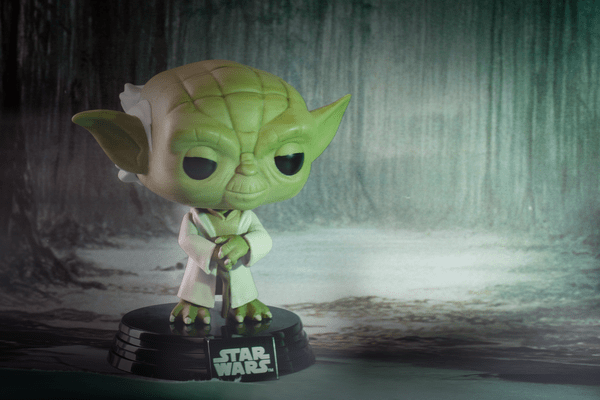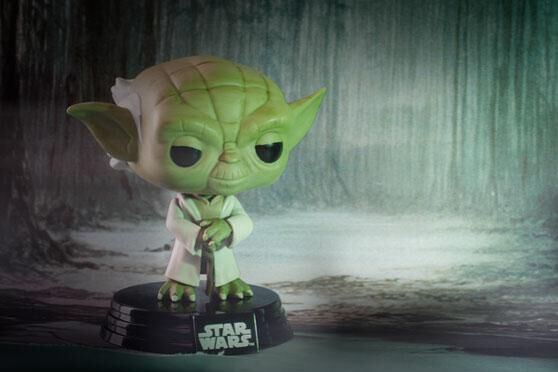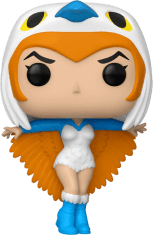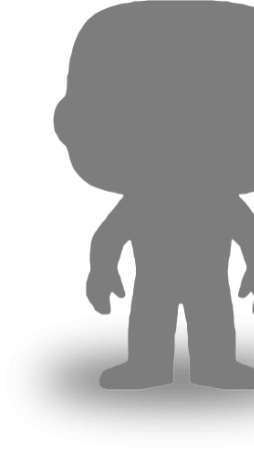
Since the very first fictional hero stepped beyond the comfort and familiarity of the known world to face off against evil, the unknown and near insurmountable odds, there have been mentors to help heroes on their journey. In the 12 steps of the hero's journey—frequently discussed on writing and storytelling blogs—meeting the mentor is step four, right after establishing the hero's ordinary world, the call to the adventure and the hero's initial refusal to answer that call. Whether it's a wizened wizard who speaks in riddles, a martial arts sensei who speaks in riddles or a 900-year old Jedi master who speaks in riddles, the mentor is a beloved and classic archetype without whom the hero would likely return to the familiar comfort of her home and endlessly binge Netflix like the rest of us non-heroes, never embarking on any adventure at all.
ThoughtCo's article “The Hero's Journey—Meeting with the Mentor” explains, “The mentor is the wise old man or woman every hero meets fairly early in the most satisfying stories. The role is one of the most recognizable symbols in literature…The mentor represents the bond between parent and child, teacher and student, doctor and patient, god and man. The function of the mentor is to prepare the hero to face the unknown, to accept the adventure.”
The internet doesn't agree on much but there is one mentor who seems to surpass all others in the hearts and minds of fans, who consistently appears at the top of lists celebrating pop culture fans' favorite fictional mentors: Yoda. From the moment he appears in Star Wars Episode V: The Empire Strikes Back, startling a young Luke Skywalker who has crash-landed his X-wing fighter on the swamp planet Dagobah, Yoda has a powerful albeit unusual presence.
The Entertainment Lister's Top 10 Mentor-Protégé Relationships in Movies acknowledges the significance and quality of characters like Gandalf, John Keating from Dead Poet's Society and Mr. Miyagi from The Karate Kid but reserves the number one spot for the mentors from the Star Wars original trilogy. “You know this was coming!” the post states. “No list can ever be complete without the series that is revered as the epitome of student-mentor relationships.”
The Chronicle of Evidence-Based Mentoring's article The top 25 mentoring movies of all time lists the relationship between Yoda and Luke Skywalker in Star Wars Episode V: The Empire Strikes Back as the greatest example of fictional mentorship. “Yoda demonstrates, as a great mentor does, how to give support, how to offer challenges that permit one to learn and grow, and how to provide vision so that the mentee gains confidence and, eventually, independence,” the post states.
Slash Film's Favorite Movie Mentor features several different perspectives on the vital role of mentors in fiction. Staff member Peter Sciretta chose the Jedi master as his favorite, writing, “I don't think there is a movie mentor that I have quoted more throughout my life than Yoda from The Empire Strikes Back … There are so many great things about Yoda. I love the idea that wisdom and training can come from not only the most powerful looking warriors, but also a small green old alien living in the swamp.” Sciretta does refer to Yoda as “the obvious answer” to any discussion about iconic movie mentors, acknowledging the supremacy of this ancient, diminutive and seemingly insignificant creature living in a remote swamp planet.
Even the young Jedi who has crash-landed on this murky, mist-shrouded planet located in the Sluis sector of the Outer Rim Territories seeking “a great warrior” completely overlooks Yoda, affording the young Jedi—as well as the audience—his first lesson courtesy of the Jedi master: the person you overlook or dismiss may be the very person you seek.
Another factor significantly impacting the audience, and likely Luke's, immediate perceptions of Yoda are his speech patterns. The Atlantic broke this down in the article “An Unusual Way of Speaking, Yoda Has.” As the article points out, “Many of the world's most-spoken languages—English, Mandarin—are built around constructions that go subject-verb-object. An example would be: Yoda grasped the lightsaber.” Then there's subject-object-verb languages like Japanese and Albanian: Yoda the lightsaber grasped. A third and even rarer option seen in Hawaiian and some Celtic languages is verb-subject-object: Grasped Yoda the lightsaber. But the final, and least common structure, which also happens to be Yoda's speech pattern, is object-subject-verb: The lightsaber Yoda grasped.
University of Edinburgh linguistics professor Geoff Pullum pointed out that the number of languages that use an object-subject-verb sentence structure seems to be limited to a handful of languages in Brazil's Amazon jungle. And even then, Yoda's sentence structures aren't always consistent, sometimes even turning to the more standard subject-verb-object constructions like when he says, “A Jedi must have the deepest commitment, the most serious mind.”
Studying Skywalkers: Mentors in the Star Wars Films on StarWars.com explores the role of mentors in the Star Wars series and, more broadly, the history of the mentor as a literary character tracing back to Homer's classic epic poem The Odyssey. In the poem, which scholars believe was written around the end of the 8th century BC, a character by the name of Mentor offers advice to Odysseus' son, Telemachus.
“…The power of what a mentor is transcends this legendary story, and finds itself present in the Star Wars saga in many different forms,” the article states. “A mentor shares knowledge and wisdom with a less experienced companion, and the Star Wars films have some of the most beloved and inspirational in all of fiction. Perhaps the most beloved mentor in Star Wars is that of Dagobah's most well-known resident, Jedi Master Yoda…To be a mentor is a role, but it is also a way of life for Yoda, who has trained Jedi to find the talent within themselves, and to continue in his or her respective journey. As Yoda famously says, ‘pass on what you have learned.'”
The mentor's—and Yoda's—ultimate lesson is one of selflessness. To be a mentor is to empower the hero on his or her journey, but at the end of the day it is the hero who defeats the villain, wins the gold medal and receives first billing in subsequent retellings of the hero's successful quest. Yoda, at least, seems supremely comfortable with the realities of this role. In fact, if he could offer his opinion on the subject of his place in the rebellion and storytelling, he'd likely say, “Worth it, it was.”
Love Dagobah? Check out the Star Wars Smuggler's Bounty Dagobah box on Amazon.
Other Famous Fictional Mentors That Deserve Some Respect
Professor Dumbledore, The Harry Potter Series
Leslie Knope, Parks and Recreation
Mr. Miyagi, The Karate Kid
Genie, Aladdin
Professor John Keating, Dead Poet's Society
Gandalf the Grey, Lord of the Rings Series
Mushu the Dragon, Mulan
Sean Maguire, Good Will Hunting
Chef Auguste Gusteau, Ratatouille
Obi-Wan Kenobi, Star Wars Series
Mary Poppins, Mary Poppins
Lester Bangs, Almost Famous
Coach Ken Carter, Coach Carter
Mufasa, The Lion King
Gordon Bombay, The Mighty Ducks
Mickey Goldmill, Rocky
Master Shifu, Kung Fu Panda
Professor Charles Xavier, X-Men Series
Coach Herman Boone, Remember the Titans
Jiminy Cricket, Pinocchio
Agent K, Men in Black
Haymitch Abernathy, The Hunger Games Series
Frankie Dunn, Million Dollar Baby
V, V for Vendetta
Dr. King Schultz, Django Unchained
Henri Ducard, Batman Begins
Ursula, Kiki's Delivery Service
Splinter, Teenage Mutant Ninja Turtles
Rupert Giles, Buffy the Vampire Slayer
Morpheus, The Matrix
Zorro, The Legend of Zorro
Zordon, Mighty Morphin Power Rangers
Rufus, Bill & Ted's Excellent Adventure
Pai Mei, Kill Bill Vol. 2






 Items in your cart may be affected with updated location.
Items in your cart may be affected with updated location.




































